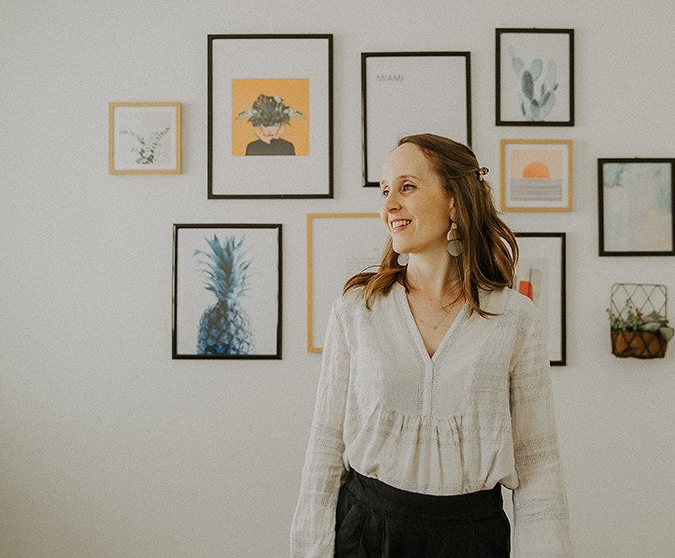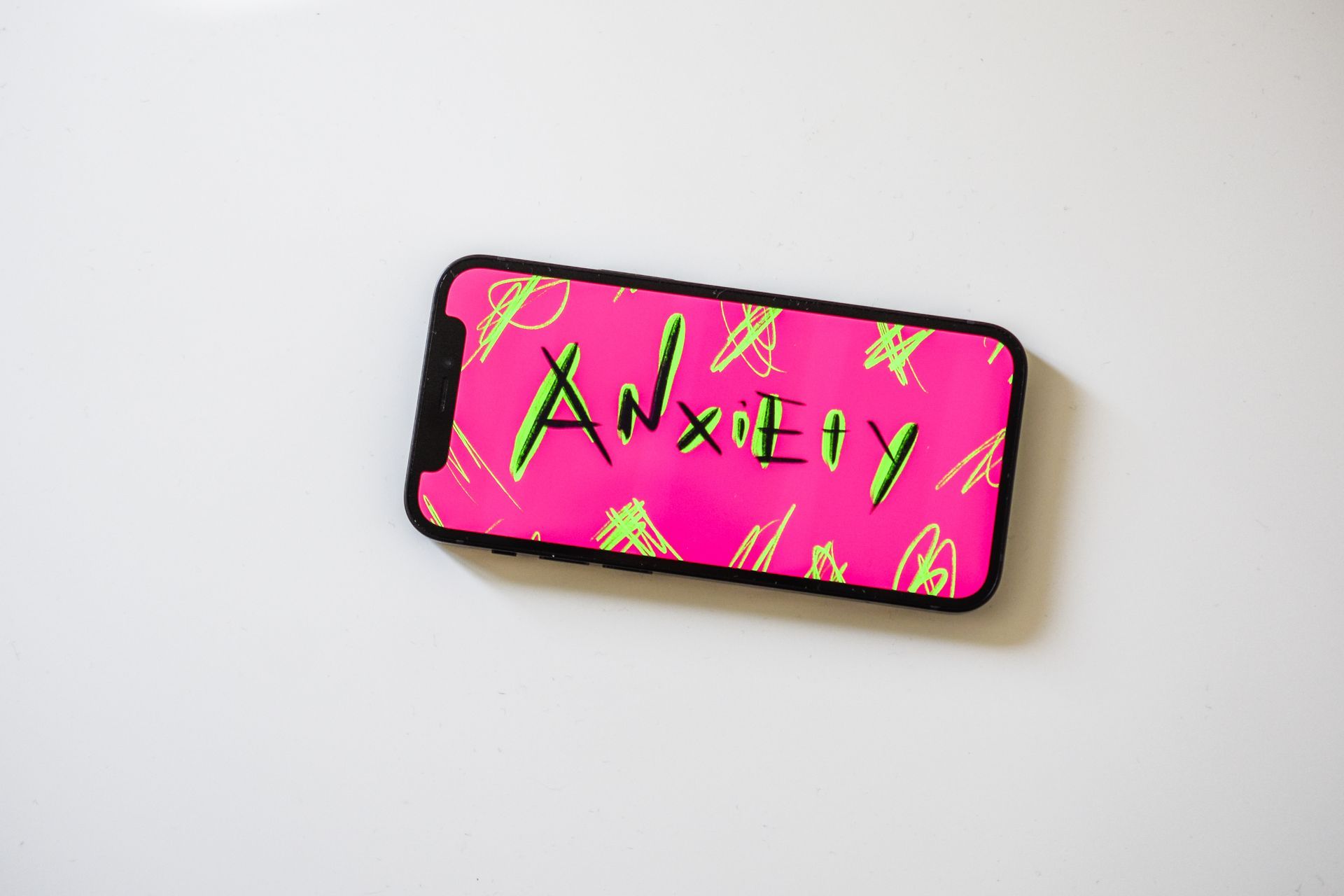It’s almost as if there were a finite amount of credits that you could use to talk about your health issues, and then you run out. It’s that little voice in your head convincing you that you can push through a bit more, that you shouldn’t reach out to people quite yet. That you need to power through and be “strong.”
A health psychologist discusses the loneliness of living with chronic illness
Do you ever feel like you shouldn’t "complain" about your health anymore because your friends might get tired of hearing about it or they won’t understand it? Or that there isn’t much else to talk about that’s “worthy” enough of a text. And maybe you stop reaching out.
You’re afraid that talking about your health is too much of a burden for others to handle.
And maybe you’ve tried to explain what it feels like to live in so much pain. The fatigue, the discomfort. Being forced to cancel plans. But it feels like no matter how much you try, no words can really convey the reality of your illness and what it feels like to be sick.
You cancel plans because the mere thought of being around people and pretending that you’re fine seems exhausting.
You feel lonely.
Many of my patients do. Like many of those living with chronic illness, they are in a lot of pain, often. And they often endure it in silence.
The loneliness of living with an invisible illness
Many of my patients live with an invisible illness; digestive disorder (IBS, ulcerative colitis, Crohn’s disease), cancer, migraines/headaches, etc. Although their symptoms are very different, they often share very similar feelings of loneliness. Some describe that friends have stopped reaching out over the years. Maybe they don’t know what to say. They might feel helpless or uncomfortable. Or they may don’t want to “bother you” when you’re feeling unwell.
Many also report feeling inadequate.
“They don’t need to hear about my health anymore”
“I shouldn’t burden them with it”
“I’m not fun to be around”
The fear that people will get tired of hearing about your health might keep you from reaching out when you are flaring up, when you're in pain, when you need them the most. It’s almost as if there was a finite amount of credits that you could use to talk about your health issues, and then you run out. It’s that little voice in your head convincing you that you can push through a bit more, a bit longer. That you shouldn’t reach out to people quite yet. That you need to power through and be “strong.”
Some have also shared the feelings of shame and embarrassment of having IBS or another GI disorder and having to justify needing to find a bathroom quickly or living in fear that others may ask questions they may not feel prepared to discuss. “I can talk about being in pain but I can’t talk about having frequent diarrhea” share many.
And there is the very disheartening reality of experiencing the disappointment of people not knowing what to say or saying the wrong thing. “You have to stop being so negative or you’ll get worse”, “Look at the silver lining”, “Oh, you seemed fine yesterday, what’s going on?” While we often mean well, the words we say to those living in pain can feel invalidating and dismissive, adding to the feeling of loneliness, of feeling unseen.
When you feel alone, answering the simplest questions or being around others can feel very daunting. In the rest of this article, I offer some ideas on how to receive the support you need (and deserve!) and feel less lonely when living with chronic illness.
No every single person can meet all of our needs, but one person can likely meet one need!
Most of us can think of someone in our lives who is a fairly good listener and won’t panic when you tell them you’re having a rough day. Other friends might feel more comfortable providing instrumental support; bringing food when you’re too sick to get out of the house or coming over to play with your kids while you take a nap.
Your go-to person may or may not be the best fit to help with that specific issue you’re struggling with. As you consider who to ask for support, think about anyone who could possibly help (or guide you to the right resource): Family, friends, therapist, faith-based community, an organization in your community, online support group, etc. Writing down a list of names and resources might help provide some clarity into this decision.
In this moment, what would you need to feel a bit less lonely? Who can you reach out to for support that might bring a smile to your face or make you feel seen?
Read this for more thoughts on how to ask for help.
People can be helpful and supportive, even if they don’t fully understand what it’s like to live with chronic illness
As all-mighty as we make it out to be, our brain is not always our best ally when it comes to thinking about what we need and how to get it.
“People are busy, they don’t need me to burden them with my health issues”
“I shouldn’t complain about it”
“They can’t do anything about it”
Sounds familiar? Let’s pause. What if in fact most people want to help? I hear you, not everyone might be available at anytime, but most people want to help! They may not just know how.
And what if they could do something about it by just being there and reminding you how much they care about you? Wouldn’t it feel a bit less lonely to be in pain and with someone for a little while, rather than just in pain and yourself?
What if people are actually okay with hearing how you feel or reaching out for help? Because not knowing how you’re doing makes them worry even more?
What if those thoughts keeping you from reaching out to others were not 100% true?
Here is how you can start chipping away at the loneliness, one thing at a time, on day at a time:
● Reach out to someone who has been helpful in the past, someone you know to be caring, someone who never fails to bring a smile to your face at one point or another
● Be willing to take a risk and let people know how you truly feel, more than often, you might be surprised by how supportive they can be. And when the alternative is not sharing and feeling lonely, what is the worst that could happen? Is it worth the risk?
● Find a support group. Maybe you won’t like it and you won’t need to go back. And maybe you'll feel seen and validated in a way that feels new and uplifting.
● Seek therapy from a pain psychologist or health psychologist. Counseling can help you feel less lonely and develop the tools to build a supportive environment in a way that works for you.
● While some people may not understand, some people likely will and they might be able to show up for you and support you more than you might have expected. Sharing about your illness, and the ups and downs of your diagnosis, in a way that feels safe and respectful to your needs, allows you to create opportunities for people to show their love and support.






